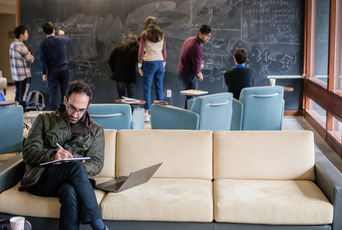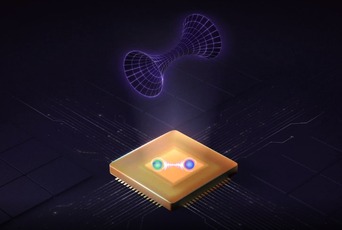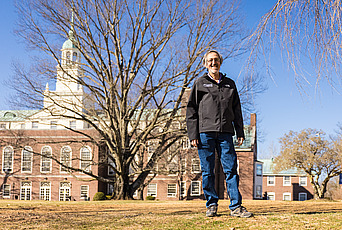
Delving Deep into Quantum Complexity
This August, a workshop on Quantum Information and Physics commenced at the Institute for Advanced Study. 157 participants from 10 countries were in attendance for the initial focus weeks, which were organized by Ignacio Cirac of the Max Planck Institute of Quantum Optics; Juan Maldacena, Carl P. Feinberg Professor in the Institute’s School of Natural Sciences; Nathan Seiberg, Charles Simonyi Professor in the School; Umesh Vazirani of the University of California at Berkeley, and Avi Wigderson, Herbert H. Maass Professor in the Institute’s School of Mathematics.
The workshop, continuing through October 31, 2024, focuses on quantum information and quantum complexity. Quantum complexity can be defined as the study of how difficult it is to solve problems using quantum computers. The workshop in particular considers the relation of quantum complexity to physical systems such as many-body problems in quantum simulators, condensed matter physics, quantum field theory (QFT), and quantum gravity.
Many-body problems involve systems with a large number of interacting particles. These are notoriously difficult to simulate using classical computers due to the exponential growth in complexity that occurs as the number of particles increases. Quantum simulators might offer a potential “quantum advantage,” namely the ability to solve certain many-body problems much faster than classical computers.

Condensed matter physics is the study of the macroscopic and microscopic properties of matter in its condensed states, primarily solids and liquids. It explores how large numbers of particles interact to create diverse materials and phenomena, from semiconductors and superconductors to liquid crystals and quantum states of matter. Quantum complexity is relevant here in several ways. For instance, quantum computers could potentially simulate complex materials more efficiently, aiding in the discovery of new materials with desirable properties.
Meanwhile, QFT is a framework that combines quantum mechanics with special relativity and is used to describe fundamental particles and their interactions. Quantum computers may offer new ways to simulate quantum field theories, potentially providing insights into high-energy physics.
Finally, quantum gravity aims to reconcile quantum mechanics with general relativity. Again, this is an area in which concepts from quantum information play a crucial role. For example, concepts from quantum complexity theory restrict the ways in which we can retrieve information from black holes and have been useful for understanding the relationship between gravity and quantum systems in holographic theories.
The workshop aims to build bridges among these different areas. During the focus weeks, a series of pedagogical lectures covered the various disciplines involved in the workshop. These lectures were designed to establish key baseline knowledge among participants from different disciplinary backgrounds, including faculty members, postdoctoral researchers, and advanced graduate students. Daily discussion sessions also encouraged conversation and collaboration among the attendees. Video lectures from the focus weeks are publicly available via a YouTube playlist.
The workshop events will recommence on the Institute campus in September and October with a further program of specialized lectures. The workshop is sponsored by the Institute for Advanced Study.



